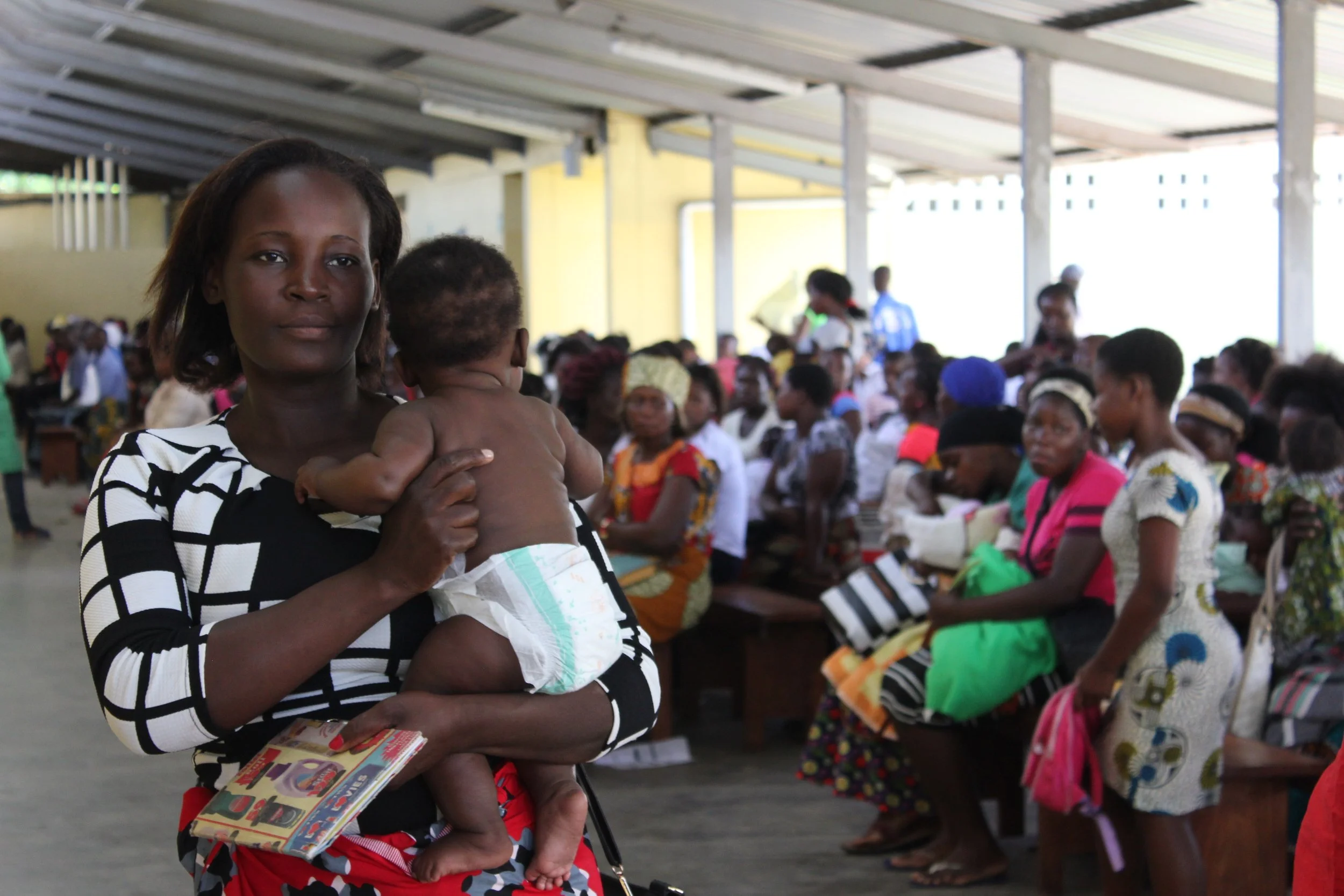
Activities
Photo by Marta Solano, provided by ISGlobal.
Electronic health records are currently being rolled out in Kenya, Mozambique, Malawi, and Uganda. The PROTECT consortium would like to seize this opportunity to get the systems ready to also collect key health outcomes data on pregnant women, neonates and infants.
Under the scientific leadership of MU JHU in Uganda (WP1), the project aims to develop pregnancy registries (WP2) that are embedded within existing national reporting systems. Pregnancy registries are key in documenting adverse events of special interest following maternal immunisation. Once in place, they will allow for quicker and easier reporting of rates of adverse pregnancy, neonatal and infant outcomes, and enable monitoring of potential safety signals once new vaccines are introduced. This will be imperative in informing and preparing for future large-scale vaccination rollout campaigns.
WP3, led by FM in Mozambique, will conduct GBS microbiological surveillance among infants in a cohort of approximately 45,000 births in Malawi, Kenya, Mozambique and Uganda to determine the annual GBS incidence rate per country and contribute to a better understanding of the burden and microbiological characteristics of GBS disease in African countries.
WP4, co-led by MU JHU in Uganda and AKU in Kenya, we will work with pregnant women, community members and healthcare providers to improve vaccine confidence and the participation of pregnant women in vaccine trials.
Taken together, these activities will help lay the foundations for the decade of maternal vaccines.
WP1: African scientific project leadership
Lead: Eve Nakabembe (MU-JHU, Uganda)
Work package 1 will ensure scientific project leadership from the African continent, in close collaboration with the European project coordinator. Spearheaded by Dr Eve Nakabembe from MU-JHU in Uganda, WP1 activities include scientific governance and leadership, communication and interaction with the funder as well as support in quality assurance and risk management.
WP2: Pregnancy registry development
Lead: Gordon Rukundo (MU-JHU, Uganda)
Whilst electronic health records are being implemented in our four African partner countries Malawi, Kenya, Mozambique and Uganda, there is wide variability in how the data is captured, compiled and reported to the central systems, as well as in data quality.
Together with key stakeholders involved in the development and management of electronic health records, we will look at existing electronic medical records data in each of the participating countries and assess how these can be used to establish an easy-to-use pregnancy registry to maximise the use of routine data. Such a registry should create minimal burden and be easy to use, and at the same time, provide key information to conduct a robust monitoring of vaccine safety during pregnancy.
The goal is to develop consensus definitions and a sustainable pregnancy registry in at least two sites per country to monitor pregnancy and infancy outcomes.
For more information about this work package, check out the video interview with Gordon Rukundo:
WP3: Sentinel site Group B Streptococcal (GBS) disease surveillance
Lead: Sergio Massora (Fundaçao Manhiça, Mozambique)
In countries with well-established invasive bacterial disease surveillance, data show that GBS is a leading cause of sepsis and bacterial meningitis in the first 90 days of life. However, in the majority of African countries, information is limited. A better understanding of the burden and microbiological characteristics of GBS disease in African countries is needed to inform GBS vaccine research, implementation, coverage and vaccine policy positions.
Against this background, work package 3 will develop and strengthen capacities for GBS disease surveillance in infants less than 90 days old at sentinel sites in four African countries using microbiology and molecular methods. We will develop a harmonised GBS surveillance study protocol, and standardised forms for collection of study data, across all four participating countries. Using this protocol, we will then conduct GBS microbiological surveillance among infants less than 90 days old admitted with invasive bacterial disease in a cohort of approximately 45,000 births in Malawi, Kenya, Mozambique and Uganda. The study will run during a period of 12 months and allow us to determine the annual GBS incidence rate per country.
For more information about this work package, check out the video interview with Tacilta Nhampossa and Sergio Massora:
WP4: Improving vaccine confidence and maternal vaccine trial participation
Lead: Agnes Ssali (MU-JHU, Uganda), Violet Naanyu (Aga Khan University, Kenya)
This work package will analyse the understanding of and willingness of pregnant women to participate in vaccine trials and monitor the knowledge, attitudes and practices around maternal vaccination, vaccine confidence and vaccine trials in pregnancy. It will also explore the perceptions of healthcare providers, pregnant women, community members and other relevant stakeholders about the barriers and attitudes to participating in vaccine trials. With these partners, we will co-create a communication & education toolkit that can help improve understanding of maternal vaccines and participation in clinical trials in low literacy populations and establish a comprehensive patient engagement program around maternal vaccine initiatives.
For more information about this work package, check out the video interview with Agnes Ssali:
WP5: Project management and communication, dissemination, and exploitation
Lead: Azucena Bardaji (ISGlobal, Spain)
This work package, led by ISGlobal, will ensure overall coordination of activities across the consortium, including quality assurance and risk management. Practical support and guidance will be provided to all consortium members.
In addition, a dedicated set of activities will facilitate successful dissemination, communication and exploitation of results to generate wide visibility of project outputs among relevant stakeholders and thereby maximise project impact.
